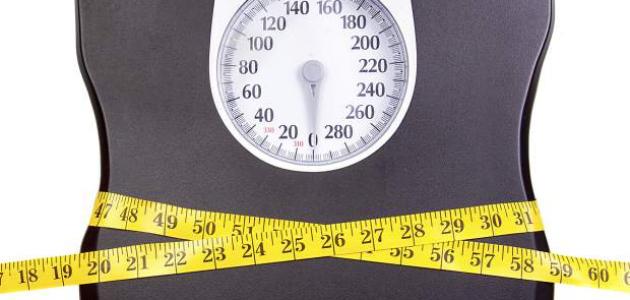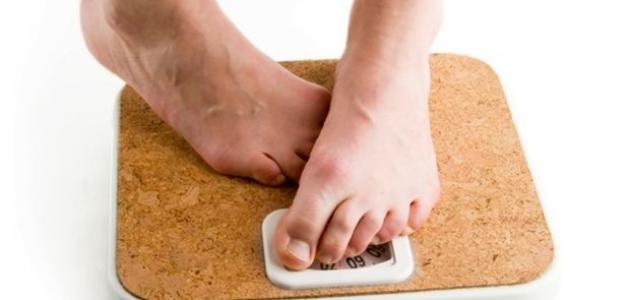Obesity
When the level of accumulated fat exceeds a certain limit, the person is considered to be overweight or obese depending on the level of the excess. To determine this, a certain scale is used. BMI is often calculated by the following equation: BMI = body weight (kg) The square is the length in meters (m 2). The result is linked to the table below. In the case of obesity, it means that the fat has accumulated in the body to the extent that it is inconsistent with health.
BMI ratings
The following table represents the body mass index (BMI) resulting from the above equation, which is used to diagnose obesity and weight gain:
| Category | Body mass index (kg / m 2). |
|---|---|
| Weight loss | Less than 18.5 |
| Normal weight | 18.5-24.9 |
| Increase in weight | 25-29.9 |
| First-class obesity | 30-34.9 |
| Second-class obesity | 35-39.9 |
| Third-class obesity (excessive obesity) | 40 and more |
Body and body fat
The fats in the human body are divided into two parts, essential fats needed by the body to perform important physiological functions, which represent about 3% of the body weight of men and 12% of the body weight of women, and stored fats are in the form of triglycerides in the fatty tissue under the skin and around the internal organs, These fats protect the organs that surround them from external shocks, and they represent the body’s primary energy store.
The fat content of the body is estimated at about 8-24% in men and about 21-35% in women. The distribution of fatty tissue differs from one person to another. The accumulation of these fats can be concentrated in cases of weight gain, abdominal obesity, This type of obesity is called obese obesity. It is characterized by the so-called general condition of the cirrhosis. This type of obesity increases the risk of heart disease, stroke, high blood pressure, diabetes and some types of cancer, This type of obesity is called the An apple, while fat accumulates in some in the hip, buttocks and thighs is the problem of obesity in general, which is less dangerous to health than the shape of the apple.
Diagnosis of moderate obesity
Obesity is diagnosed using BMI, but it does not give an indication of the distribution of these fat. To determine whether a person is moderately obese, the circumference of the abdomen, which should not exceed 88 cm in women or 108 cm in men, Between BMI and waist circumference to determine the extent to which obesity is linked to the risk of moderate obesity.
It is also possible to use the waist ratio of the hip to determine the shape and type of obesity, that is, whether it is apple or black. This is calculated by dividing the measurement of the waist circumference on the measurement of the hip circumference, where the classification of obesity in the middle (apple shape) if the result is greater than 0.8 Ladies are larger than 1 in men.
How to get rid of belly fat
The treatment of obesity and the elimination of accumulated fat in the body by combining diet and exercise, in addition to the modification of some behaviors and errors in lifestyle, which contributed to the weight and fat accumulation, where these steps to treat abdominal fat as part of the treatment of obesity Weight gain, as scientific studies have found a relationship between aerobic exercise and the elimination of abdominal fat in particular.
Exercise
Scientific studies suggest that there is a direct correlation between exercise, especially aerobic exercise, and reduced abdominal fat mass, which include internal fat surrounding the organs, so exercise is the best solution to fight abdominal fat and treatment of moderate obesity and reduce the risk of diseases related to them.
Some scientific research found that moderate to severe exercise for 8 weeks reduced abdominal fat. Most of the research used aerobic exercise, but it also found an effective effect for resistance exercises. The ability to exercise aerobic exercises to lower abdominal fat was directly related The minimum duration of exercise to reduce abdominal fat is at least 10 hours per week, including aerobic exercises that can be performed; fast walking, jogging, stationary cycling, etc., and some research has found science However, there is no definitive scientific evidence of this result, which can explain the positive effects of exercise on health indicators independently of weight loss.
Diet
There is no magic diet to remove belly fat, but when you lose weight in general, abdominal fat starts to decline. Diet is the most effective and fastest solution in treating obesity, weight loss and total body fat compared to exercise or taking drugs without adopting a weight loss diet. In order to achieve weight loss, the calorie intake in the daily diet should be reduced to those that the body burns.
When designing diets for weight loss, do not use foods that are promoted as food to help lose weight. In contrast, the food that the person loves or can learn to love must be adopted and accessible to him according to his means and means. Which can be used, and the person must be realistic in determining the calories consumed daily, without exaggerating the reduction, as the loss of fast weight means a significant loss in the tissues of the body soft, and low calorie diet significantly may not believe The minimum human needs of nutrients, the person should eat small portions and the number of meals larger, and should be directed to food low-density energy, ie, which gives low calories for weight, such as foods with high content of water and dietary fiber, and low content of fat, As these foods give you a greater sense of satiety through lower calories than others, and you must also be careful to take water in sufficient quantities, as it helps to lose weight by increasing the feeling of fullness and reduce the feeling of hunger.
Modifying behaviors
Behavioral modification works to support weight loss plans. There are hundreds of erratic eating and exercise behaviors that can be modified, but it takes time and effort, so this step needs staging, commitment and the will to sustain. To identify the wrong behaviors, and then start strategies of change by learning and adoption, and must be careful to get enough sleep, about 7 hours a day, because the deprivation of adequate sleep adversely affects metabolic processes, and reduces Of a person’s ability to exercise, and raises the chance of eating unhealthy small meals.


